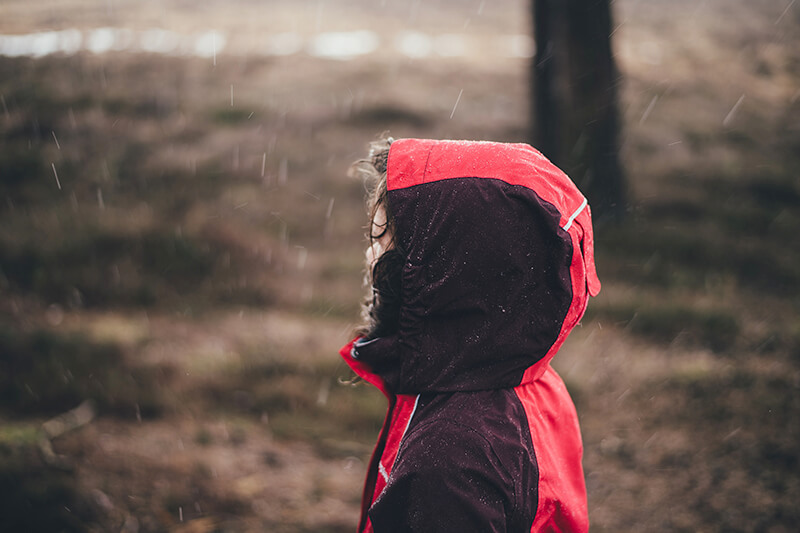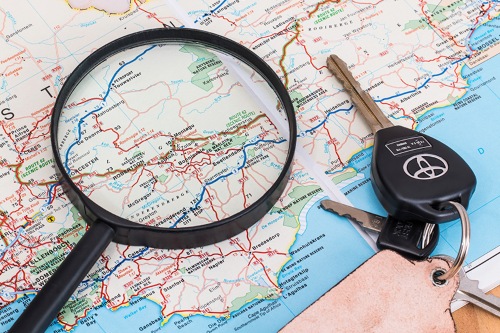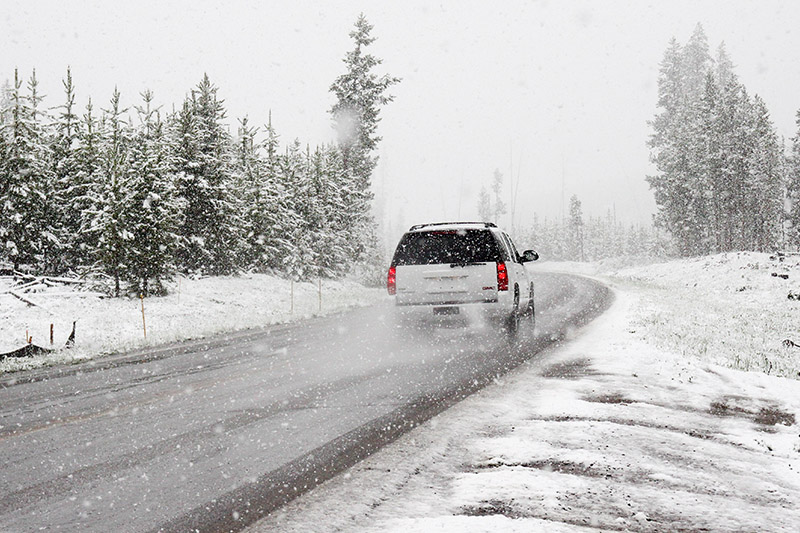When misfortune strikes and your vehicle breaks down in the middle of a British Columbia winter, it won’t likely happen in a dry, well-lit place with perfect cell-phone coverage; so best to be prepared. Yes, you may have a few supplies stashed in your vehicle in case of emergency. Kudos to you if your vehicle has comprehensive insurance, plus a roadside assistance membership.
However, having a well-stocked emergency kit is an essential for any driver, especially in the wintertime. In poor road conditions, it can take response teams some time to get to you, so it’s well worth a few minutes of your time to re-stock or set up an emergency kit. It will make for a much less distressing experience while you await help. Here are some excellent items to have on hand:
Basic Tool Kit
You don’t have to be a certified mechanic to benefit from carrying a few basics in your car. Go online, or visit your local retailer for a ready-to-use kit that includes jumper cables. Putting one together can also be a cost-effective solution. If you’re going that route, make sure you’ve covered the essentials, such as: duct tape, screwdriver, socket wrench, pliers, and cable ties.
First Aid Kit
A well-stocked first aid kit should include: an easy to use first-aid guide, sterile gauze pads of different sizes, adhesive tape. adhesive bandages, elastic bandage, a splint, antiseptic wipes, soap, antibiotic ointment, antiseptic solution (like hydrogen peroxide), acetaminophen and ibuprofen, extra prescription medications, tweezers, sharp scissors, safety pins, disposable instant cold packs, alcohol wipes or ethyl alcohol, plastic non-latex gloves (at least 2 pairs), and a mouthpiece for administering CPR (can be obtained from your local Red Cross).
Hand Warmers
Ever tried wielding a pair of pliers when your fingertips feel like ice? Whether you’re tackling a quick repair, or simply keeping morale up while you wait for help, hand warmers can be a saving grace. Some even offer up to 12 hours of heat.

Raingear
There’s nothing quite like getting drenched in an icy winter downpour while checking what’s amiss under the hood to make you wish you’d stashed a spare rain coat or poncho in case of emergency. Plan ahead and you’ll be warm and dry.
Food
High energy, ready-to-eat foods are very helpful to have in case of emergency. Consider packing powdered drinks (like sport or electrolyte beverages), hard candies, and granola bars. The key is to focus on non-perishable items, containing ample, fat, sugar and salt. If you have an infant, powdered formula is a must.
Blanket
Maintaining body heat is a top priority in an emergency. Heavy duty blankets are great, and mylar emergency blankets (sometimes referred to as “space blankets” due to their NASA technology) are even better. These are a staple of any emergency kit because they are so small, lightweight and efficiently reflect your body heat back at you. When purchasing, be sure to check the package and make sure your emergency blanket is both windproof, and waterproof (most are, but not all).
Spare Shoes
That perfect pair of heels is great for a night on the town, but certainly not suited to tasks like changing a tire, or walking to the nearest gas station. You’ll be glad to slip into an old pair of shoes or boots if the need arises.
Folding Shovel
If off-roading wasn’t part of your game plan, but you’re suddenly stuck in the snow or mud, you’ll be happy to have this handy tool to help your vehicle get better traction.
 Road Map
Road Map
Sure, Google Maps is a friend to many, but if your coverage is spotty, or you want to conserve that 10% phone battery for an emergency call, it’s invaluable to have a regional road map on hand just in case.
Water
Clean drinking water may seem an obvious thing to have in an emergency during the summer months, but what you may not know is that winter weather makes you especially susceptible to dehydration. In order to conserve energy, blood vessels constrict when we’re cold and prevent blood from flowing as freely to hands and feet. The catch is that your body gets fooled into thinking it’s hydrated because you don’t feel as thirsty and your body doesn’t conserve water. Stocking several bottles of water could literally be a lifesaver when it comes to staying warm, or fighting off fatigue.
Lighting and Reflectors
Being visible to other drivers, and clearly seeing your surroundings is a safety must. Make sure you’ve stored a flashlight, or headlamp, with plenty of extra batteries. Reflective triangles are especially important if you’re broken down on the highway.
Need a competitive quote for auto insurance? We’re here to assist you. Contact your nearest Johnston Meier Insurance location.
